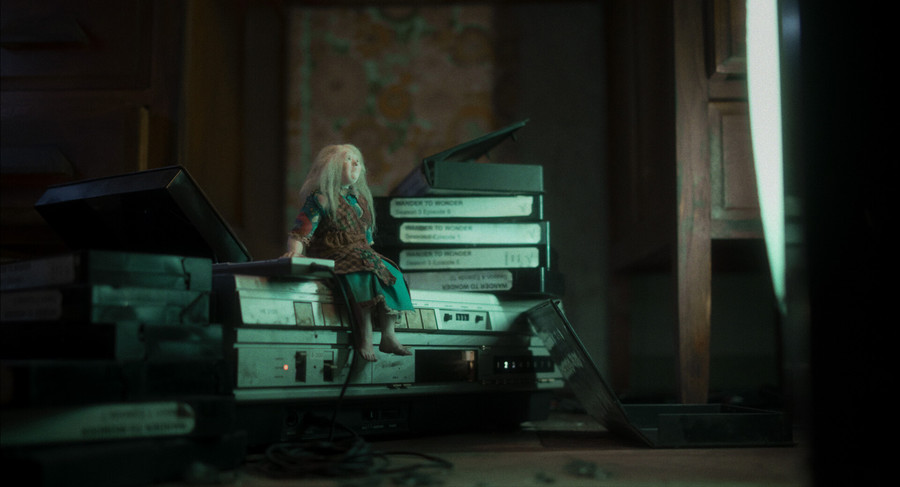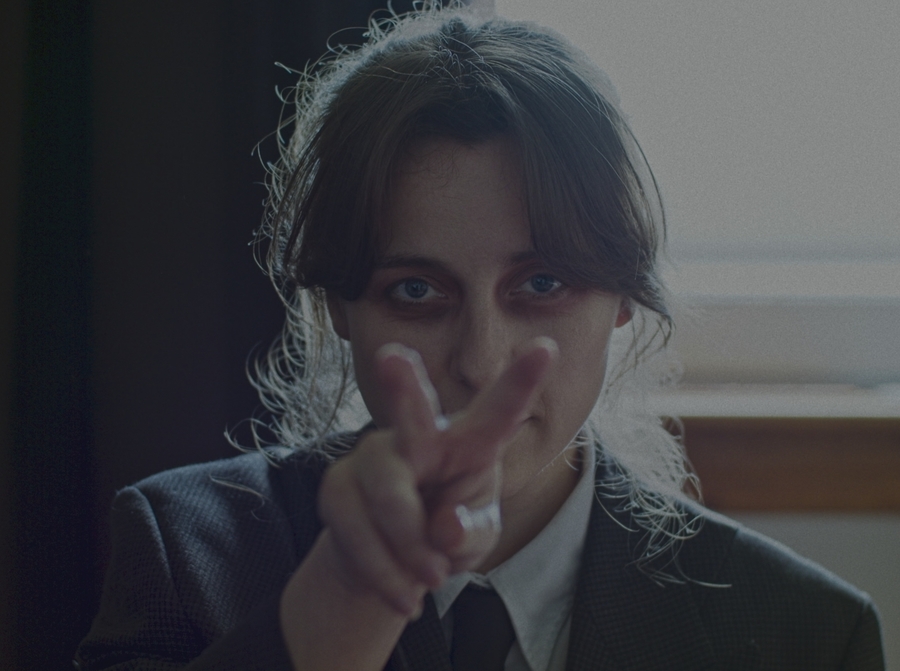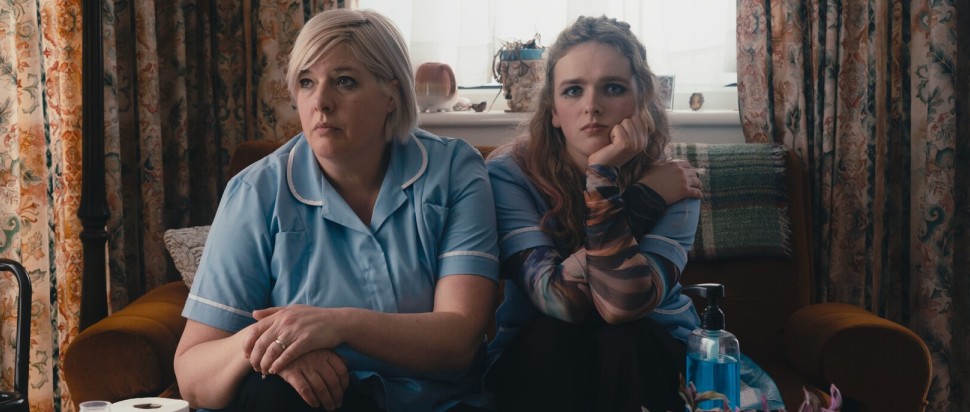Glasgow Short Film Festival 2024: The Award Winners
Annabel Moodie’s empathetic Friends on the Outside takes the top prize in Glasgow Short Film Festival’s Scottish Competition while Saleh Kashefi's And How Miserable is the Home of Evil won the Bill Douglas Award for Best International Short Film
The curtain came down on another Glasgow Short Film Festival on Sunday (24 Mar), and it was a bittersweet affair, with the festival’s excellent programmer Sanne Jehoul stepping down after ten years at the festival. Given the quality of the films that were handed prizes at the annual Awards Ceremony, it seems she’s leaving GSFF in good shape.
The Bill Douglas Award for International Short Film went to And How Miserable is the Home of Evil, a curious hybrid film from Saleh Kashefi, an Iranian filmmaker living in exile in Switzerland. Kashefi has taken footage from an official propaganda film of Ali Khamenei, the ayatollah of Iran, and combined it with archive sound clips from protests and riots to create a speculative fiction imagining the ayatollah’s lonely downfall as his people rise up against him. The film is more interesting in concept than execution, but it’s certainly a ballsy piece of work. The GSFF jury said of And How Miserable is the Home of Evil: "Simple, yet clever and deeply effective, this film makes as powerful a gesture cinema can make in speaking truth to power.”

Wander to Wonder (Dri. Nina Gantz) | Image: courtesy of GSFF
GSFF’s audience also had their say on their favourite film in the Bill Douglas Award Competition, and voted for Nina Gantz’s stunning animation Wander to Wonder. This stop-motion gem follows Mary, Billybud, and Fumbleton, the thumb-sized stars of a kids’ TV show who are left to fend for themselves when the show’s presenter drops dead. The film’s dingy VHS aesthetic is beautifully realised, as is the macabre comedy, which includes fly juggling and Shakespearian soliloquies combined with gratuitous puppet nudity. But what distinguishes Gantz’s film is a deep melancholy as these creations come to terms with life without their creator.
In the Scottish Film Competition, the jury went for Annabel Moodie’s funny, sweet, humanistic documentary Friends on the Outside. The film centres on a prisoner named Jamie. He’s a recidivist – this is his eighth stint inside but he’s determined it’ll be his last. A love of nature has given him a new lease on life. He’s replaced the weed he used to smoke with the Chamomile he forages in the fields of his open prison, and adopts a baby crow he nursed back to life Jamie tells his story in a charmingly excited fashion over the telephone while Moodie brings his stories to life through a myriad of images and experimental techniques.
The result is a moving statement on the perils of incarceration. The jury said they were “struck by the sophistication and intelligence with which the film elicits wider questions about the conditions facing incarcerated people in this country without ever losing sight of the very vivid and very human subject at the film's core.” Moodie’s short was another product of the essential Scottish Documentary Institute.
The jury also gave a special mention to Blackwool, writer-director Eubha Akilade's film about a young black girl dealing with bullies and institutional racism in a Scottish school. "We felt that [Blackwool] has a confidence to it that came through both in performance and storytelling and tackled the subject matter with the nuance it required," said the jury. "Contained in its storytelling but impactful in its message, it’s a vital Scottish story that makes us very excited to see what [Akilade] does next.”
My favourite film among the winners was Care, which took home the Scottish Competition Audience Award. It’s a warm, funny, politically sharp piece that’s all the more impressive for being a graduate film. Directed by Jagoda Tłok, it follows two carers. One is Hania (Aleksandra Blaszczyk), a young Polish woman who’s working in care to help fund her dream of studying electronic music; the other is Lorna (Deborah Anderson), an older Scottish woman who’s been in the job much longer and become more cynical after years of being worn down by the demands of her job. We follow them on a day's shift as they try to give a bit of dignity to their infirm clients, but the agency they work for doesn’t give them enough time to do their job properly. Their buzzing phone keeps trying to push them on to the next job, and failure to keep to schedule and toe the company line could mean losing out on future shifts.
Tłok gets expressive performances from her leads, who create two distinct, lived-in characters and a deeply convincing bond over the short run time. Its sharp look at life on a zero-hours contract reminded me of Ken Loach’s Sorry I Missed You, and it’s certainly brimming over with similar righteous anger. But it’s also a film of delicate moments too – a caring hand when someone needs it most, a nod of solidarity that says ‘I’ve got your back’, a shared laugh between co-workers to give them a moment of respite from the drudgery. I can’t wait to see what comes next from this talented young filmmaker.

Mouth (Dir. Guy Woods) | Image: courtesy of GSFF
Talking of talented young filmmakers, two Young Scottish Filmmaker Prizes (open to filmmakers aged 18-25) were also handed out. One prize was for a filmmaker who hasn’t received formal education or training or funding during the production of their film, and this went to Guy Woods for his wonderfully whimsical comedy Mouth, which sees a low-energy Grim Reaper named Sharon getting too close to her latest victim. Imagine if The Seventh Seal was directed by Miranda July and you’d be part-way to Mouth’s adorably strange, kooky vibe.
The second prize, for a young filmmaker working with formal funding or university support, went to Becky Miková’s The House of Culture. It's an inventive documentary blending archive, animation, reenactment and Miková’s grandmother’s first-person testimony to tell the story of the titular building, a utopian dream built in Czechoslovakia devoted to culture that now sits in ruin in modern-day Slovakia.
Of these results, Matt Lloyd, GSFF’s Festival Director, said: “Thank you to the juries for their bold choices of challenging unique visions, and our audience for their thoughtful critical eye. This has been a very special edition of the festival for many reasons, and I will treasure the conversations that took place for a long time.”
GSFF took place 20-24 Mar; more info at glasgowshort.org
